Network Partners
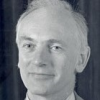
Professor Sir Hew Strachan, Principal Investigator for Hunger Draws the Map, is Emeritus Fellow at All Souls College, University of Oxford and Professor of International Relations at the University of St. Andrews. His recent books include The First World War: Volume 1: To Arms (2001), The First World War: an illustrated history (2003; related to a multi-part television series and translated into many languages), Clausewitz’s On War: a Biography (2007), and The Direction of War (2013). He is the editor of The Oxford Illustrated History of the First World War (revised edition, 2014), and a clutch of volumes arising from his Directorship of the Oxford Changing Character of War Programme.
He is a member of the Chief of Defence Staff’s Strategic Advisory Panel, the Defence Academy Advisory Board, and the Council of the International Institute for Strategic Studies, and has been a specialist advisor to the Joint Parliamentary Committee on the National Security Strategy in the recently dissolved Parliament. He is a Trustee of the Imperial War Museum and a Commonwealth War Graves Commissioner, and serves on both the United Kingdom’s and Scotland’s national advisory panels for the centenary of the First World War.
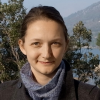
Dr Claire Morelon is Co-applicant for Hunger Draws the Map at the University of Oxford, and Associate Researcher for the PREWArAs project at the University of Padova.
Her research focuses on daily life in the Habsburg Empire during the First World War and in its immediate aftermath, in addition to the broader interactions between State and society during the late Habsburg Empire. She is currently preparing her first monograph entitled Streetscapes of War and Revolution: Prague 1914-1920. She has published articles and chapters on refugees during the First World War, the Habsburg war effort, and the urban-rural divide.
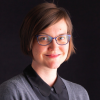
Dr Mary Elisabeth Cox, Co-applicant for Hunger Draws the Map, is Departmental Lecturer and William Golding Junior Research Fellow in the Arts, Humanities, and Social Sciences at Brasenose College, Oxford, and a Visiting Fellow at the Hoover Institution, Stanford University.
Her research focuses on the health, hunger, and inequality of civilians during the First World War. Her first book, ‘Hunger in War and Peace’ is forthcoming from Oxford University Press as part of their Historical Monograph Series. She was the 2016 recipient of the Alexander Prize from the Royal Historical Society for the best published article in any field of history by an early career historian.

Dr Mustafa Aksakal is associate professor of history and Nesuhi Ertegun Chair of Modern Turkish Studies at Georgetown University.
He specializes in the history of the late Ottoman empire and the Turkish Republic, and he is the author of The Ottoman Road to War in 1914 (Cambridge, 2008), a study of internal reasons for the empire’s decision to join the war on Germany’s side. His current book project, Ottoman Society at War, investigates military and civilian life during wartime in the empire's final decade.

Dr Joël Floris is Postdoctoral Research Assistant, Evolutionary Morphology and Adaptation Group, Institute of Evolutionary Medicine (IEM) / Department of Economics (ECON), University of Zurich.
His research interests include Anthropometric History; Economic, Health and Social History of Switzerland; History of Statistics; Quantitative Economic History; and Demography.
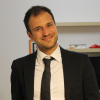
Dr Francesco Frizzera is Post-Doc Researcher at the Katholische Universität Eichstätt-Ingolstadt (Germany).
After completing his doctorate on Trentino's refugees in Austria-Hungary and Italy during the First World War, his current research focuses on food and agricultural policies in Germany from 1914 to 1933. In addition, he is a member of the historic committee of the German Federal Ministry for Food and Agriculture, and research fellow at the University of Trento.
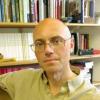
Professor Mark Harrison is Professor of the History of Medicine and Director of the Wellcome Unit for the History of Medicine at the University of Oxford.
His research considers how the history of disease and medicine relate to global history and the histories of war and imperialism between the seventeenth and twentieth centuries.
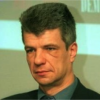
Dr Ēriks Jēkabsons, Dr hist., is a professor of history and philosophy in the Department of Twentieth Century Research, Institute of Latvian History, University of Latvia.
He is working to incorporate post-World-War-I reports on Latvia from the American Red Cross and the American Relief Administration into the canon of historical knowledge about the country. His research interests include modern Latvian history, national minorities in Latvia, Latvian-Polish and Latvian-Lithuanian relations in the first half of the 20th century, and the history of the Latvian Army.

Dr Friederike Kind-Kovács, is Research Associate at the Hannah Arendt Institute for Research on Totalitarianism at the TU Dresden (Germany). She is a twentieth century cultural and social historian focusing on transnational and transatlantic entanglements, and author of the prize-winning Written Here, Published There: How Underground Literature Crossed the Iron Curtain (Central European University Press, 2014). Her current book project, The Great War, the Needy Child and the Making of Humanitarian Child Relief in Central Europe, explores the history of childhood in relation to issues of war, poverty, migration and humanitarianism.

Dr Samuël Kruizinga is assistant professor in contemporary history, and Programme Coordinator for the MA in Military History, at the University of Amsterdam.
He specialises in the global impact of conflict during the nineteenth and twentieth centuries, focusing especially on the First World War and the Spanish Civil War. He has written extensively about neutrality during the First World War, specifically about the impact of economic warfare on neutrals in 1914-1918. His new research project is on the history of foreign fighting in Europe in the nineteenth and twentieth centuries.
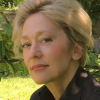
Professor Sophie De Schaepdrijver is Professor of History (Modern Europe) at Pennsylvania State University. A social and cultural historian of modern Europe and the First World War, she is the author of a prize-winning monograph on the Belgian war experience (Dutch original, 1997; revised French translation, 2004), and has published widely on military occupations during the First World War, on transnational families’ war experiences, and on war and memory in literature and politics. Recent works include Bastion: Occupied Bruges in the First World War (2014), Gabrielle Petit: The Death and Life of a Female Spy in the First World War (2015), and An English Governess in the Great War: the Diary of Mary Thorp, co-written with Tammy Proctor (Oxford University Press, 2017).
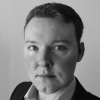
Nick Siekierski is a PhD candidate at the Tadeusz Manteuffel Institute of History of the Polish Academy of Sciences in Warsaw.
His dissertation is on Herbert Hoover and the American Relief Administration in Poland, 1919–1922. He worked at the Hoover Institution Library and Archives, Stanford University until 2014 as curator for exhibits on topics including World War II, Chinese history, art, and democracy in Eastern Europe. In 2015 he was a Silas Palmer Fellow at the Hoover Institution.

Dr Kaspar Staub is Institute Manager, Senior Research Assistant and Deputy Head, of the Evolutionary Morphology and Adaptation Group, at the Institute of Evolutionary Medicine, University of Zurich. He is also Lecturer at the Institute of History, University of Bern.
His research interests include overweight/obesity, anthropometry (height/BMI), birth weight, historical epidemiology, anthropometric history, changes in human body shape, history of health and nutrition, and historical demographics.

Tiffany Shumaker is the Network Facilitator for Hunger Draws the Map. She provides administrative and research support to Professor Sir Hew Strachan, Dr Mary Cox, and Dr Claire Morelon, and co-ordinates several logistical, financial, digital, and academic elements of the project under their direction.
She has over a decade of experience in academic project administration, historical research, and quantitative and qualitative analysis, and is working towards the completion of her DPhil at Oxford, which focuses on the experience of poverty in early modern England.


